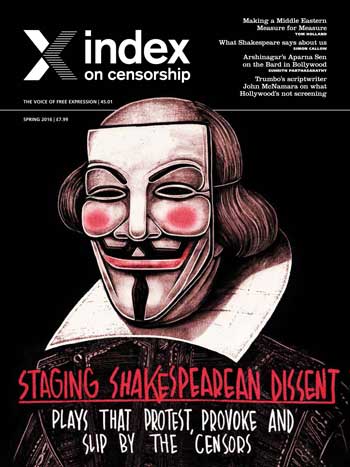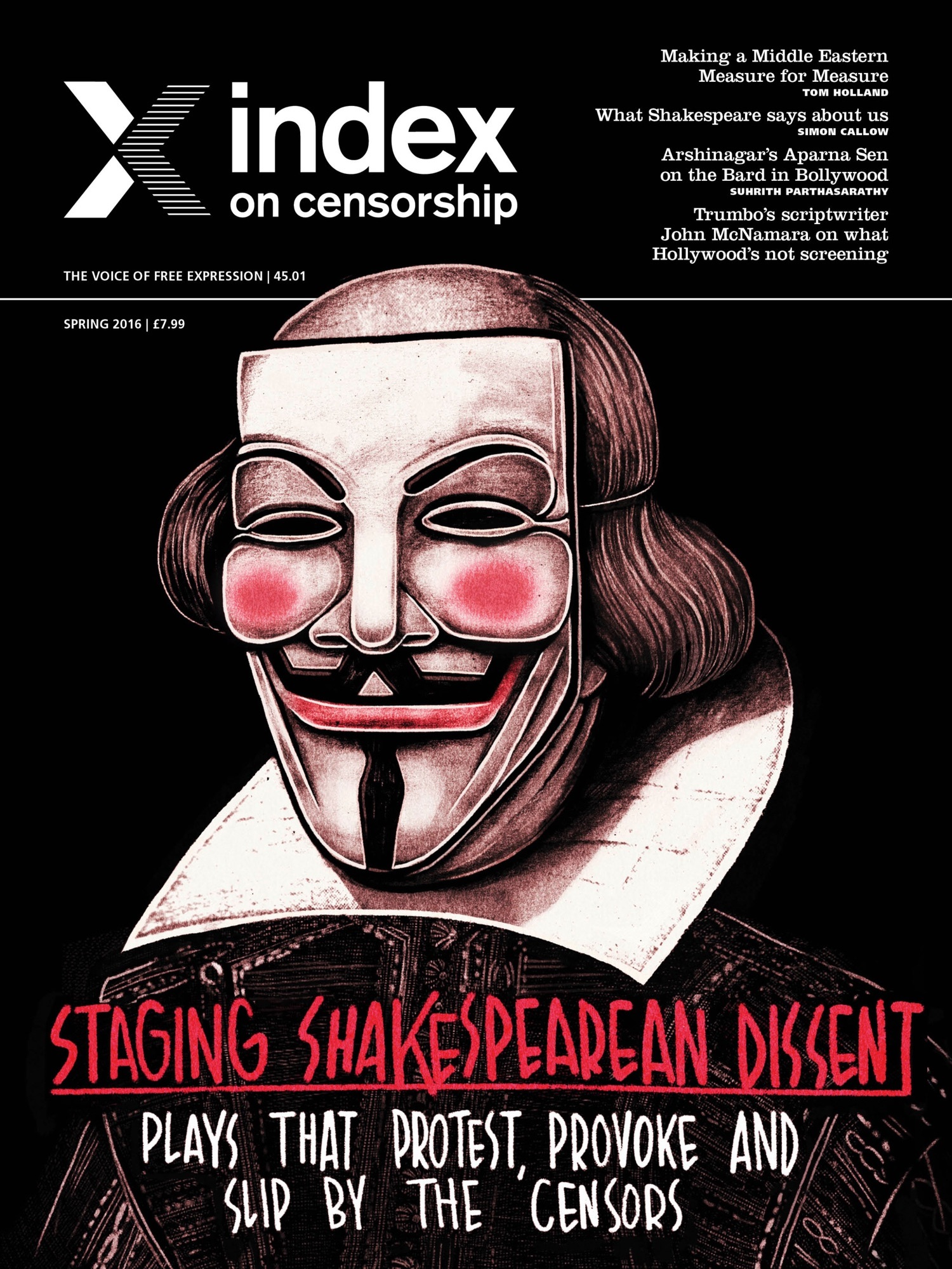Hitler was a Shakespeare fan; Stalin feared Hamlet; Othello broke ground in apartheid-era South Africa; and Brazil’s current political crisis can be reflected by Julius Caesar.


Hitler was a Shakespeare fan; Stalin feared Hamlet; Othello broke ground in apartheid-era South Africa; and Brazil’s current political crisis can be reflected by Julius Caesar.

How well do you know Shakespeare?

Index on Censorship magazine Index has compiled a reading list of articles from the magazine archives covering the censorship of theatre.

Shakespeare was no stranger to censorship from the Elizabethan and Jacobean police states. Actor and writer Simon Callow charts how Shakespeare’s plays have amused monarchs and dictators but also prompted their anger.

Protest, dissent and controversy are all found within the pages of Shakespeare’s plays. Index on Censorship editor Rachael Jolley introduces a Shakespeare special issue as the 400th anniversary of his death approaches

The award-winning cartoonist discusses his design of the latest Index on Censorship magazine cover on the 400th anniversary of Willian Shakespeare’s death
Shakespeare, protest and dissent is the theme of the Spring issue of Index on Censorship magazine

Rachael Jolley, editor of Index on Censorship magazine in a speech to the §2 – Libraries and Democracy conference in Umea, Sweden.

I am of the firm belief that even those who do not have faith in a personal and providential divinity can still experience forms of religious feeling and hence a sense of the sacred

This year brings the 400th anniversary of William Shakespeare’s death and Index on Censorship is marking it with a special issue of our award-winning magazine, looking at how his plays have been used around the world to sneak past censors or take on the authorities – often without them realising. Our special report explores how different countries use different plays to tackle difficult themes.
A quarterly journal set up in 1972, Index on Censorship magazine has published oppressed writers and refused to be silenced across hundreds of issues.
The brainchild of the poet Stephen Spender, and translator Michael Scammell, the magazine’s very first issue included a never-before-published poem, written while serving a sentence in a labour camp, by the Soviet dissident Aleksandr Solzhenitsyn, who went on to win a Nobel prize later that year.
The magazine continued to be a thorn in the side of Soviet censors, but its scope was far wider. From the beginning, Index declared its mission to stand up for free expression as a fundamental human right for people everywhere – it was particularly vocal in its coverage of the oppressive military regimes of southern Europe and Latin America but was also clear that freedom of expression was not only a problem in faraway dictatorships. The winter 1979 issue, for example, reported on a controversy in the United States in which the Public Broadcasting Service had heavily edited a documentary about racism in Britain and then gone to court attempting to prevent screenings of the original version. Learn more.